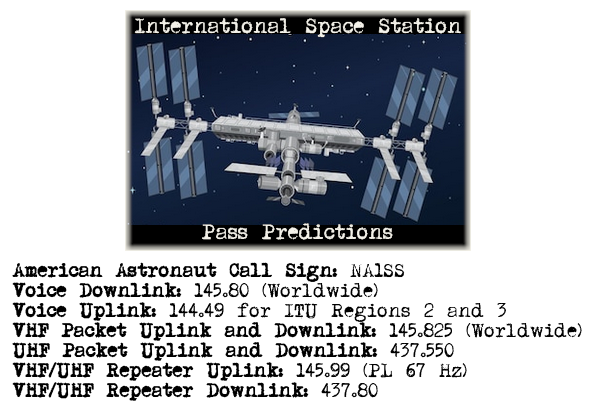
| HOME |
RADIO |
THE BIG STORM |
CONTACT ME |
MY BANJO |
FAVORITES |
NC SCUBA | PROJECTS |
   |

|
 |
| It
is both a hobby and a service – better known as "Ham Radio".
Unlike most hobbies, however, Ham operators are licensed by their
government. In the United States it's the Federal Communications
Commission. The Federal Communications Commission allows amateur
operators many privileges because the hobby is partially based on
service to the general public, and Hams can be relied on to assist
during emergencies. Groups of amateur operators meet annually to
practice handling emergency communications in the field and to compete
against other groups nationwide in performing certain emergency related
tasks. Amateur operators may set up warning and relief networks
during the hurricane and tornado seasons, and handle communication when
telephone lines and cell towers are damaged by disasters. In order to use an amateur radio, applicants must pass a test, which varies depending on the country. There are several test levels, each one granting more privileges to the operator, such as range of frequencies and antenna power, and special call sign choices. In the United States the basic license is the Technician license which is granted after an applicant passes a 35-question written exam on basic FCC regulations, operating practices, and electronics theory, with a focus on VHF and UHF applications. The next higher class of license is the General license, which is granted after the applicant passes another 35-question written exam on more advanced radio practices, radio theory, and antenna theory. The highest class of amatuer license is the Amateur Extra license, which is granted after the applicant passes a third written exam consisting of 50 questions on some of the more obscure FCC regulations, specialized operating practices, advanced electronics theory, and radio equipment design. Extra Class licensees are authorized by the FCC to operate on all frequencies allocated to the Amateur Radio Service and up to 1,500 watts of power. |

|
 |
 |
 |
| I passed the FCC
Technician FCC exam in May of 2021 at the Onslow Amateur Radio Club
and was issued call sign ko4qdg by the FCC. I passed the FCC
General ham license exam in July of 2021. In August, I passed the
FCC Amateur Extra exam and chose the short 4-digit call sign
kd3y. Due to the limited number of 4-digit call signs available,
they are the most sought after by amateur radio enthusiasts and are
only granted to Hams who have earned the Amateur Extra license. With my Ham radio, I am able to communicate with other Amateur Radio operators all over the world. During hurricanes when cell phones towers may be down and electricity is out and the Internet is not operational, I am able to talk with other Amateur Radio operators in North Carolina. The kg4grw repeater tower is shared by the Carteret County Emergency Services (fire, police, and other emergency services) and it has solar power backup. Thus it is operational even when the hurricanes and winter storms take out the power grid in Carteret County. My current high frequency, all band ham radio is the Yaesu FT-890 transmitting 100 watts of power, connected to a tri-band fan dipole I made from 12 guage stranded copper wire, hung 26-feet in the pines trees in my back yard. My mobile radio is a Yaesu FT-7900 with 50 watts of power, connected to a dual band Diamond X50A vertical antenna mounted on a 20-foot mast in my yard with RG-213 coax. The 7900 operates on both the VHF 2-meter band and the VHF 70-cm band. The Carteret Amateur Radio Society has a repeater about 6 miles from my house that I can transmit through to talk to people in other parts of North Carolina. I also have a Yaesu FT-65 handheld radio with 5 watts of power. Most of the time I am listening on the Newport (k4grw) and Oriental (147.210) repeaters on 145.450 MHz and 147.210 MHz respectively. |
 |
 The crew's usual waking period is 0730 - 1930 UTC (0230 – 1430 EST) The most common times to find a crew member making casual radio contacts are about one hour after waking and before sleeping, when they have personal time. |




Last Updated 02-15-2026